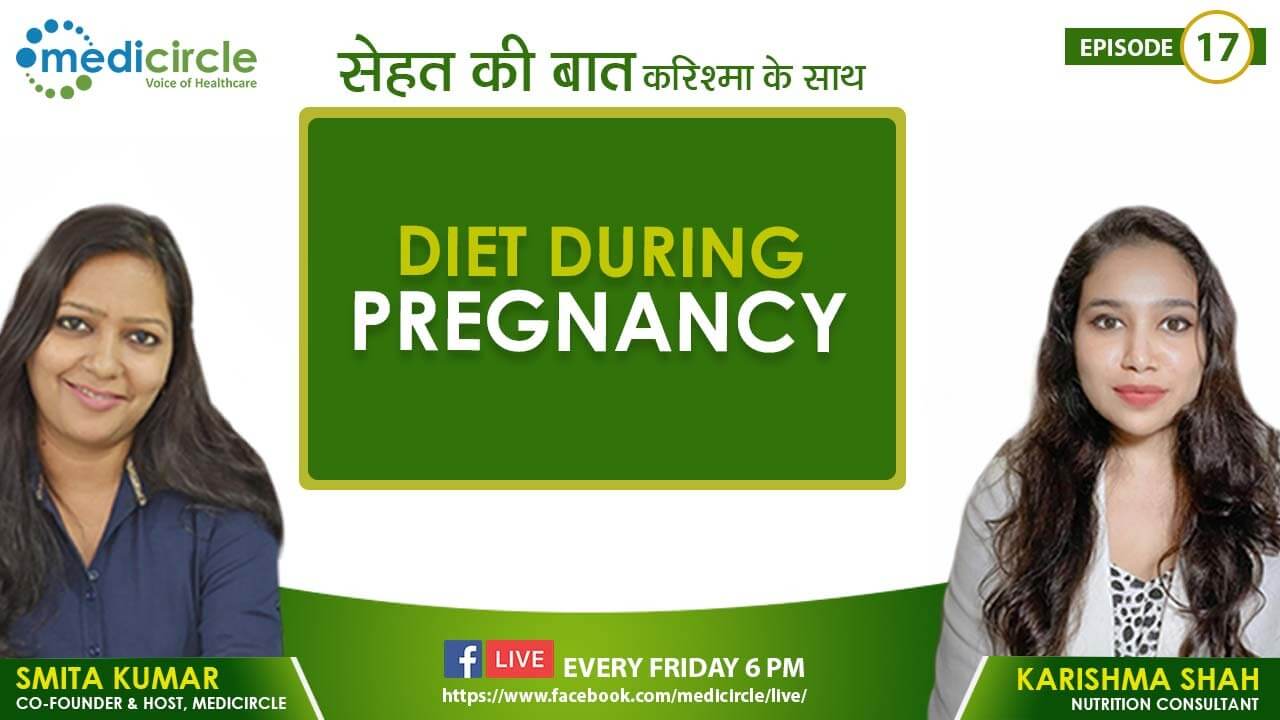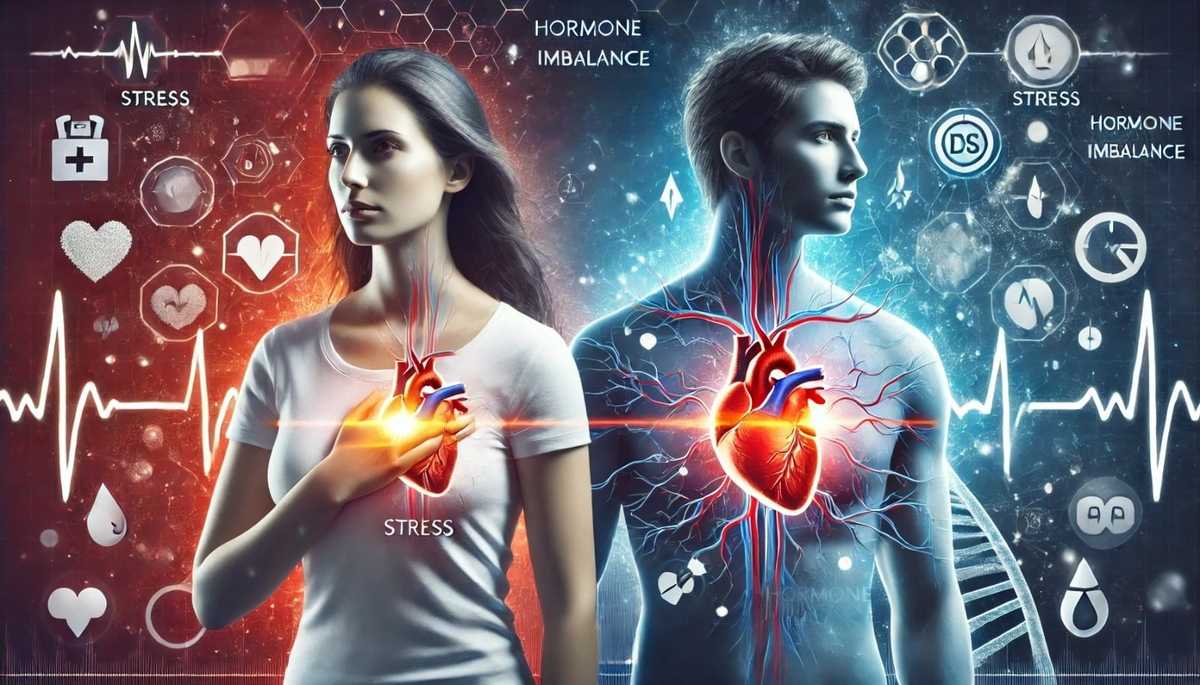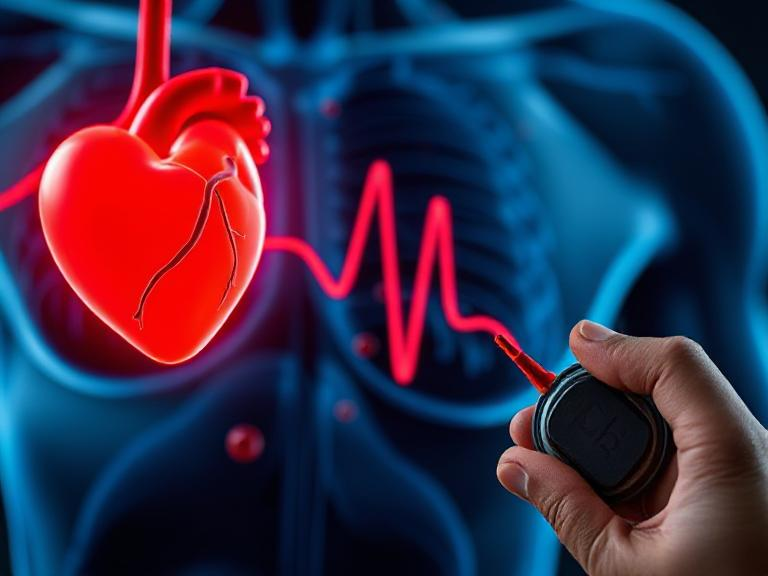Pregnancy is a very important phase in a women’s life. It is often termed as “second birth” for a woman. Food and diet are important for a healthy pregnancy and child. The mother should be gifted with a stress-free environment for the birth of a healthy child. It is the responsibility of the father and mother for a healthy pregnancy and baby. Stress and unhealthy food can cause many health problems and illnesses in the infant. Food, diet along stress are some important aspects to deal with pregnancy.
Malnutrition is a very important problem that needs to be checked in the pregnancy and health of an unborn child. Pregnancy is a demanding stage of life that needs attention. Maternal malnutrition must be given importance for healthy baby weight.
At Medicircle, we are presenting the Ask The Expert Series for health awareness to understand facts and find solutions related to them. We have come up with a series of Sehat Ki Baat, Karishma Ke Saath. Let’s interact with Expert Karishma Shah about diet tips in pregnancy
Karishma Shah is a Renowned Nutritionist and Plant Diet based Food Coach. She is also a Weight Loss Expert, Diabetes and PCOS Educator & Certified in Psychology of Eating
Nutrition for pregnant mother and child
Karishma says, “The unborn child receives energy and nutrition from the pregnant mother. So, it is important to take care of the nutrition of the pregnant mother. The lower socio-economic strata of society do not receive enough nutrition for pregnant mothers and unborn children. Many lactating mothers are suggested to give milk powder. Breast milk is the best nutrition for the baby and also helps in fighting postpartum depression in mothers. Providing breast milk to the child helps in developing strong bonds and connecting in mother-baby relationships. Healthy children are the future of our country.”
Consumption of the right amount of food for the pregnant mothers
Karishma says, “Many pregnant mothers are advised to consume food for 2 people when they are expected by their family members. This is a myth. Eat how much satisfies you. Do not overdo eating during pregnancy. The accepted norm and standard protocol for weight gain in pregnant mothers are 8-12 kgs. When your baby is born, looking after the child will help you shed that extra kilos and weight which you have put on during the pregnancy phase of 9 months. Eat only for yourself. You just have to consume 400-500 calories/day more during the pregnancy. This is enough for the overall development of the baby.”
Foods for a healthy pregnancy
Karishma informs, “ Postpartum depression is common in mothers. It is connected to the diet. Postpartum depression generally occurs after the birth of the baby. There are cases of complications in pregnancy like gestational diabetes, hypertension, anemia, anxiety, mood swings, thyroid disorders, and others that are very common. There is the standard hormonal balance that regulates pregnancy. Diet needs to be kept under check during pregnancy. Include the following:
Folates like beetroot, nuts, seeds, or supplements Omega 3 foods like eggs, fish, flax seeds, walnuts, almonds, sesame seeds Iron foods like green vegetables, moringa, wheatgrass, meat, eggs, or supplements
This will help you post-pregnancy health like fatigue, tiredness, depression, and energy levels. Every mother must consume dal rice for good levels of protein.
Movement during pregnancy
Karishma states, “Movement is important for pregnancy. It improves blood circulation and keeps your fitness levels optimum. If your doctor is suggested rest due to health conditions, kindly follow it.
Talk a light walk after meals Exercise for 30 mins every day during pregnancy.”
Myths busted about milk and milk products
Karishma states, “Many pregnant mothers are advised that consuming ghee, milk, and cream of milk will help for a fair-skinned child. This is just a myth. If you have a desire to consume high-rich ghee products, consume them once in a while. But, the child will follow genetics. Also, consuming milk and milk products in high quantities won't change the color of the child. Consuming milk and milk products will cause extra weight gain and lethargy. Consuming 1 -2 tsp of ghee a day is enough. The birth depends on the genetic makeup.”
Diet after pregnancy: Get back in shape
Karishma informs, “Keep your weight under check during pregnancy. This will help lose weight organically and naturally after pregnancy. The 1 year after pregnancy is quite crucial as you are under breastfeeding mode which is a must for a child. Do not strat immediate exercise and it after the birth of the child. This will hamper the breastfeeding process and reduce lactation. This will have a negative effect on the immunity and development of a child.
Do not rush into exercise and diet after pregnancy. Consume your normal meals during pregnancy. Keep patience after pregnancy for healthy mother-child bonding. Give time to your body. This 1 - year after birth is precious. Enjoy those moments with the baby. After 1 year of birth start incorporating healthy foods and exercise. Keep your focus clear to achieve results.”
Sour and spicy foods in pregnancy: Myth busted
Karishma states, “ Eating sour and spicy foods during pregnancy is normal. If you desire such foods, eat in moderate quantities. Spicy foods cause acidity sometimes. So, control of some foods is important. Everything enjoyed in moderate quantities is a must.”
Water intake during pregnancy
Karishma states, “There is a need to go and urinate again and again. The urgency to go to urinate is common during the pregnancy as the pressure increases in the pelvis. Detox is important and if you urinate several times during pregnancy, is suggestive of detox. 2-3 liters/day is important for hydration and weight loss.”
Foods for lactating mother
Karishma explains, “What we consume reaches the baby in the form of breast milk. Consuming caffeinated drinks like tea and coffee can reach the baby through breast milk. Too much caffeine can cause dehydration. Lack of fiber can impact the lactation process. It is important to take care of what you eat and drink during pregnancy and this is what is getting converted into food.”
(Edited by Dr.Rati Parwani)

 Diet during pregnancy is important for a healthy mother and child. Karishma Shah advises pregnant mothers to go stress-free with healthy foods for healthy born children. She also cleared the air in regards to the myths during pregnancy about consuming ghee, milk, sour and spicy foods. A must-watch episode for every pregnant woman.
Diet during pregnancy is important for a healthy mother and child. Karishma Shah advises pregnant mothers to go stress-free with healthy foods for healthy born children. She also cleared the air in regards to the myths during pregnancy about consuming ghee, milk, sour and spicy foods. A must-watch episode for every pregnant woman.







.jpg)












.jpeg)



.jpg)







.jpeg)

.jpg)


